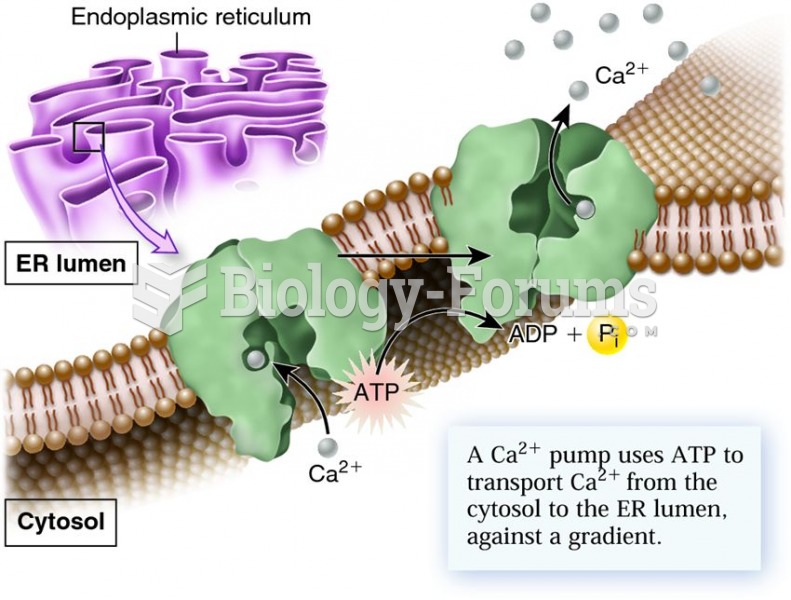|
|
|
Bacteria have flourished on the earth for over three billion years. They were the first life forms on the planet.
Pubic lice (crabs) are usually spread through sexual contact. You cannot catch them by using a public toilet.
In 2006, a generic antinausea drug named ondansetron was approved. It is used to stop nausea and vomiting associated with surgery, chemotherapy, and radiation therapy.
Historic treatments for rheumatoid arthritis have included gold salts, acupuncture, a diet consisting of apples or rhubarb, nutmeg, nettles, bee venom, bracelets made of copper, prayer, rest, tooth extractions, fasting, honey, vitamins, insulin, snow collected on Christmas, magnets, and electric convulsion therapy.
There are 20 feet of blood vessels in each square inch of human skin.







